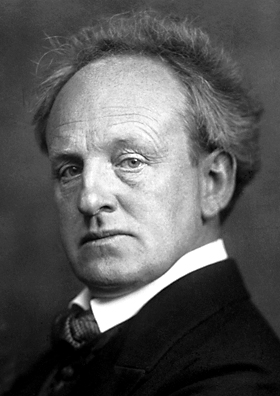Gerhart Hauptmann was awarded the Nobel Prize in Literature in 1912. He received this prestigious honor primarily for his profound contributions to the development of modern drama and his skill in portraying the social realities and conflicts of his time.

Gerhart Hauptmann was a German playwright, novelist, and poet. He played a significant role in the Naturalist movement and is considered one of the pioneers of modern drama. His works explored themes of social injustice, the struggles of the working class, and the clash between individual desires and societal norms.
Hauptmann’s most renowned play, “Die Weber” (“The Weavers”) (1892), brought him international recognition. It depicted the hardships and struggles faced by Silesian weavers during the Industrial Revolution and shed light on the social inequalities and oppressive working conditions of the time. The play’s realistic portrayal of social issues and its powerful social critique resonated with audiences and established Hauptmann as a leading playwright of his era.
The Nobel Prize in Literature is awarded to an author, regardless of nationality, who has produced the most outstanding work of an idealistic tendency in the field of literature. The Swedish Academy, responsible for selecting the Nobel laureates in literature, recognized Hauptmann’s significant contributions to the development of modern drama, his ability to capture the complexities of human nature, and his unflinching examination of social realities.
Hauptmann’s body of work, which spanned a variety of genres, including plays, novels, and poetry, portrayed the human condition with depth and realism. His work had a profound influence on subsequent generations of playwrights and reflected his commitment to social justice and the portrayal of the struggles of ordinary people.
The Nobel Prize in Literature was awarded to Gerhart Hauptmann as a recognition of his outstanding talent, his innovative contributions to drama, and his powerful depiction of social issues and human conflicts in his works.




